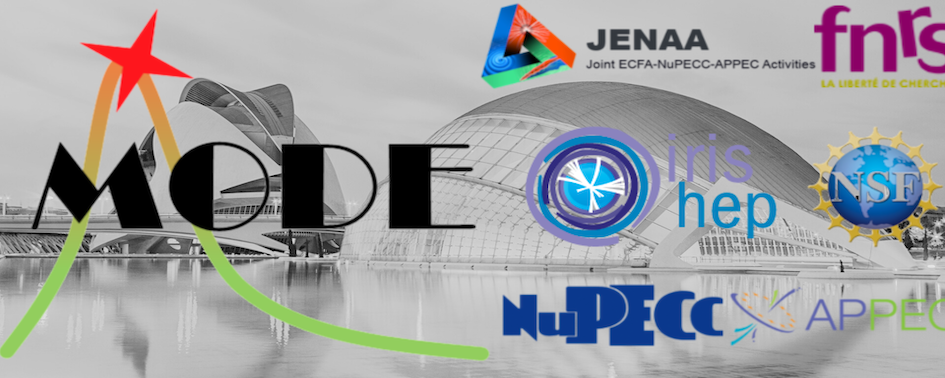Speaker
Description
Cosmic muon interactions leading to the in-situ production of long-lived radioisotopes may introduce a significant background in the context of rare event searches conducted deep underground. Specifically, the delayed decay of $^{77(m)}$Ge emerges as the primary contributor from in-situ cosmogenic sources for the neutrinoless double-beta decay search with $^{76}$Ge. The future LEGEND-1000 experiment, aiming for a ton-scale setup, necessitates a stringent requirement of a total background less than $10^{-5} \rm cts/(keV\cdot kg \cdot yr)$. Neutron backgrounds are closely tied to factors such as laboratory depth, shielding material, and cryostat design. The incorporation of passive neutron moderators results in a reduced background contribution. In order to determine the most effective shield design, computationally intensive Geant4 Monte Carlo simulations need to be generated multiple times to probe the high-dimensional parameter spaces. Traditional Monte Carlo simulations, however, may prove time-consuming and challenging when addressing full optimization across numerous parameter spaces. This renders conventional methods, such as grid searches, computationally infeasible. Machine learning emerges as a valuable tool, not only for accelerating common modeling but also for minimizing the reliance on computationally expensive standard Monte Carlo methods. We outline a study of a Multi-Fidelity Gaussian Process combined with a Conditional Neural Process, showcasing its application in a small-scale context based on various neutron moderator configurations. The approach presented holds the potential for adaptability in exploring alternative detector shielding designs for $^{76}$Ge experiments, such as LEGEND.
